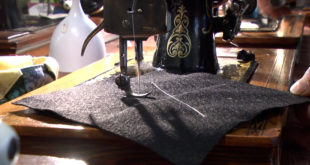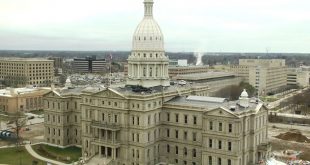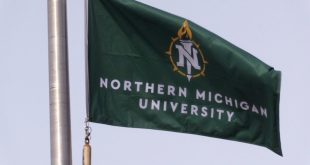The Michigan Department of Natural Resources has awarded a total of $100,000 in deer habitat improvement grants in the Upper Peninsula. The funds will be allocated to 11 grant award recipients.
The Deer Habitat Improvement Partnership Initiative is a competitive grant program designed to enhance deer habitat on non-state-managed lands in the U.P.
“This year’s grants are for excellent projects designed to address local and regional deer habitat needs,” said Bill Scullon, grant program administrator and DNR field operations manager from the Norway Field Office. “Many of the projects funded in this latest grant cycle focus on improving long-term cover in deer wintering complexes (deer yards) and improving foraging opportunities for deer going into and coming out of stressful winter conditions.”
Projects have been approved for partnering organizations in Iron, Gogebic, Dickinson, Schoolcraft, Menominee, Iron, Ontonagon, Chippewa, Luce, Mackinac, Baraga, Marquette and Delta counties.
The grant proposal recipients selected for 2017 are:
- U.P. Whitetails Inc. – $6,829
- Ontonagon County Chapter of Whitetails Unlimited – $8,000
- Dickinson Conservation District – $12,000
- Gogebic Conservation District – $5,811
- Camp Debby LLC. – $10,000
- Sustainable Resources/ Forest Park School District – $5,360
- Chippewa-Luce-Mackinac Conservation District – $10,000
- Iron-Baraga Conservation District – $13,000
- Marquette County Conservation District – $13,000
- The Forestland Group and U.P. Whitetails Inc. – $10,000
- Schoolcraft Conservation District – $6,000
This season’s grant projects involve enhancing spring breakout wildlife openings with nutritious forage, planting large oak saplings in areas impacted by beach bark disease, planting soft mast trees for high-calorie fall foods, conifer plantings in deer wintering complexes, creating hunter walking trails, and scarifying land within deer wintering complexes to promote regeneration of long-lived conifers and other trees that need bare mineral soils exposed to grow in.
A committee reviewed and scored 13 grant proposals, based on five specific grant evaluation criteria. The criteria included production of tangible deer habitat enhancement benefits; proposal logistical feasibility; public accessibility or proximity to public lands; partner cost share and participation in the project implementation; and the inclusion of a communications strategy.
Now in its ninth year, the initiative is supported by the state’s Deer Range Improvement Program, which is funded by a portion of deer hunting license revenue.
To date, a total of $450,000 has been spent on 60 grant projects.
Grant-funded projects have been completed in every U.P. county, involving hundreds of individual private landowners and thousands of acres of deer habitat.
“These projects often become the catalyst for lasting partnerships and promote community conservation efforts across the region,” said J.R. Richardson, a Michigan Natural Resources Commissioner who lives in Ontonagon. “Many times they lead to self-sustaining efforts by participants long after the grant money has been spent.”
For more information, visit the DNR website at www.michigan.gov/dnr-grants.
 Keweenaw Report Your Source for Local News and Sports
Keweenaw Report Your Source for Local News and Sports





